Alright, here are some images. I'm getting very inconsistent ohm readings from the green wire to ground when the key switch is turned on.
When the stator is installed, with the brush removed, I'm getting 190 ohms.
However, the green wire to battery lug is giving me 153 ohms. How can my engine ground have less resistance to ground than my actual negative battery lug?
Next weird thing is when I pull the stator off the bike and let it hang I'm 65.7 ohms.
And then hanging stator to negative battery lug is giving me 108.7 ohms!
This last picture is showing hanging stator to the black ground wire at the regulator plug .7 ohms. This reading is consistent with the reading from the green wire on the stator to the reg plug when the stator is installed over the rotor. This reading seems right and means that the bad continuity to ground is somewhere down the line from the reg plug.
Anyone have any idea why these reading are all over the board? And how in the world there could be less resistance to frame ground that to the actual battery lug?
Could someone tell me where the frame ground is so I can check for good connection?
And lastly if I have bad continuity to ground on my green wire could that contribute to overcharging my battery?
Thanks in advance guys. I'm looking forward to hearing what you think,

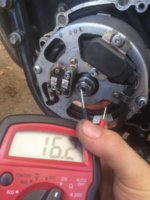
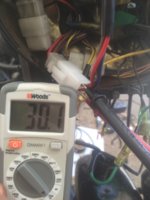
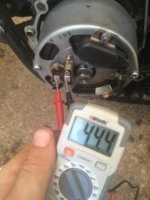
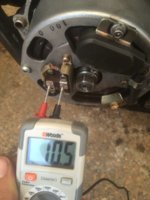
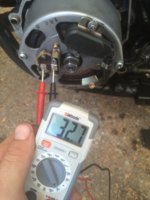
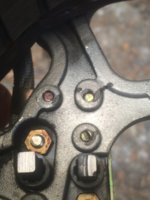
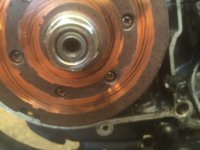
 Alternators................I just replace the parts when I am convinced they are bad. I have complete faith in this type of system when the parts are all checked, replaced with parts of good reputation, good reputation, good reputation.
Alternators................I just replace the parts when I am convinced they are bad. I have complete faith in this type of system when the parts are all checked, replaced with parts of good reputation, good reputation, good reputation.